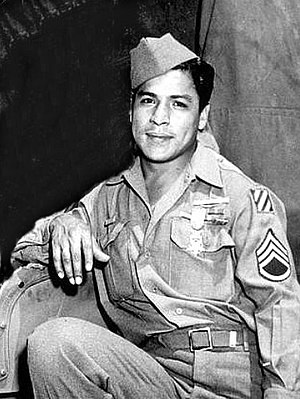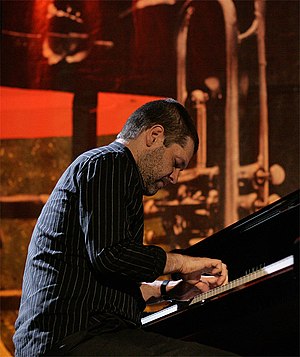Discover Your Roots
SIGN UPDiscover Your Roots
SIGN UPThe name Lucian is of English origin and is primarily a male name meaning "light." The name is associated with Lucian of Samosata, a Hellenized Syrian satirist and rhetorician known for his tongue-in-cheek style and ridicule of superstition and religious practices. Lucian's works, written in ancient Greek, were widely popular in antiquity and have had a significant impact on Western literature. His most famous work, "A True Story," is considered the earliest known work of science fiction, and his invention of the comic dialogue influenced later writers such as Thomas More, François Rabelais, William Shakespeare, and Jonathan Swift. Lucian's philosophical views were marked by irony and sarcasm, and he was known for his criticism of pseudo-philosophers and superstition, making him a significant figure in the realm of literature and philosophy.

Lucian W. Pye (白魯恂; Bái Lǔxún; October 21, 1921 – September 5, 2008) was a prominent American political scientist, sinologist, and expert in comparative politics. He dedicated much of his career to studying the political development and modernization of Third World nations, emphasizing the importance of specific cultures in shaping political theories, rather than pursuing universal theories like many of his contemporaries. Pye's influential work led to him being recognized as a leading proponent of political culture and political psychology concepts.Born in China to missionary parents, Pye's early exposure to Chinese culture greatly influenced his scholarly pursuits. He went on to become a distinguished teacher at the Massachusetts Institute of Technology for 35 years, where he mentored numerous students who later assumed prominent roles in academia and government. Pye's groundbreaking approach, which focused on understanding the cultural differences that shape political systems, contributed to a new way of thinking in post-World War II social science.Throughout his career, Pye authored and edited several books, and his expertise led him to advise Democratic presidential candidates, including John F. Kennedy. Despite facing criticism for his unconventional approach, Pye's contributions to the field of political science and his impact on the study of Asian politics solidified his legacy as a respected and influential figure in the academic and political spheres.

Lucian Adams (October 26, 1922 – March 31, 2003) was a courageous United States Army soldier during World War II. He was born in Port Arthur, Texas, and enlisted in the Army in February 1943. Adams' heroic actions in Italy and France earned him the Medal of Honor, Bronze Star, and Purple Heart. His remarkable feat involved single-handedly destroying enemy machine gun emplacements to re-establish supply lines to U.S. Army companies. Despite facing heavy enemy fire, Adams fearlessly charged forward, eliminating multiple enemy positions and securing the safety of his fellow soldiers. His brave efforts earned him the nickname "the Tornado from Texas." After the war, Adams worked for the Veterans Administration for over 40 years before retiring in 1986. He passed away on March 31, 2003, and is buried in the Fort Sam Houston National Cemetery in San Antonio, Texas. Adams' extraordinary courage and unwavering commitment to his comrades continue to inspire generations. The Staff Sergeant Lucian Adams Elementary School in Port Arthur is named in his honor.

Lucian Rose Foster (12 November 1806 – 19 March 1876) was a prominent figure within the Latter Day Saint movement, known for his multifaceted career as a photographer, accountant, bookkeeper, and clerk. Born in New Marlboro, Massachusetts, Foster embraced the Church of Jesus Christ of Latter Day Saints in December 1840, assuming roles such as church conference clerk and branch president in New York City. Notably, he played a crucial role in Joseph Smith's 1844 presidential campaign and was admitted to the Council of Fifty in 1845. Foster's relocation to Nauvoo, Illinois, in 1844 marked the introduction of the daguerreotype to the region, and he subsequently set up a daguerreotype studio, producing some of the earliest photographic images of Nauvoo and its residents. Engaging in various affiliations, including with James Strang's breakaway Church of Jesus Christ of Latter Day Saints, Foster's life was characterized by dynamic shifts and controversies, including his opposition to plural marriage. His legacy endures through the daguerreotypes attributed to him, showcasing his contributions to early photography. After a series of relocations, Foster passed away in Salt Lake City in 1876, leaving behind a complex and multifaceted legacy within the Latter Day Saint movement.

Lucian Ban, born in 1969, is a Romanian-American jazz pianist known for his captivating compositions and remarkable performances. Growing up in the picturesque village of Teaca, Transylvania, Ban was immersed in the rich tapestry of folk music permeating the local celebrations. His musical journey began at the age of seven in Cluj, where he embarked on classical piano and composition training. After studying composition at Bucharest Music Academy, Ban ventured to New York City in 1999 to further hone his craft at New School University.Throughout his illustrious career, Ban has collaborated with esteemed artists and released a series of acclaimed albums, including "Somethin' Holy," "Premonition," and "Playground." His innovative work with luminary musicians like Alex Harding and Barry Altschul has garnered widespread recognition and accolades. Notably, Ban's outstanding contributions to jazz have been acknowledged through prestigious awards and nominations, such as the Best Jazz Album of 1999 in Romania and a nomination for Best European Jazz Musician by the Hans Koller Foundation and the Austrian government.With an impressive discography and a captivating stage presence, Lucian Ban continues to enchant audiences worldwide with his soul-stirring artistry and unwavering dedication to the jazz genre. Explore more about his musical odyssey on his official site or at Lucian Ban on Discogs.

Lucian Müller (17 March 1836 – 24 April 1898) was a renowned German classical scholar known for his erudition and critical acumen. Born in Merseburg, he studied at the universities of Berlin and Halle before moving to the Netherlands, where he worked on his notable work, Geschichte der klassischen Philologie in den Niederlanden (1869). Despite his inability to secure a university appointment in Germany, Müller accepted the professorship of Latin at the Imperial Historico-Philological Institute in St Petersburg in 1870, where he spent the remainder of his life.Müller's works, heavily influenced by the methods of Richard Bentley and Karl Lachmann, were characterized by their depth of research and sharp criticisms of eminent scholars. His notable publications include De re metrica poetarum latinorum (1861), Metrik der Griechen und Römer (2nd ed., 1885), G. Lucili saturarum reliquiae (1872), Leben und Werke des Gaius Lucilius (1876), and editions of various classical poets such as Horace, Catullus, and Phaedrus. Notably, his work on the metrical system of the Roman poets and literary biographies have been cited as pivotal contributions to the field of classical studies.Müller's impact on classical scholarship endures through his influential works, which remain valued resources for scholars and enthusiasts alike.
All images displayed on this page are sourced from Wikipedia or Wikimedia Commons.We use these images under their respective Creative Commons or public domain licenses. Wherever applicable, author attributions and license information are provided. If you believe an image is used incorrectly or outside its license terms, please contact us so that we can review and correct the issue.